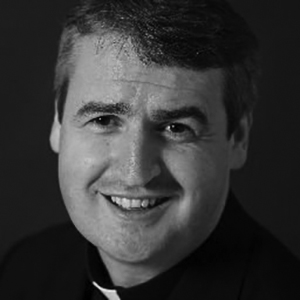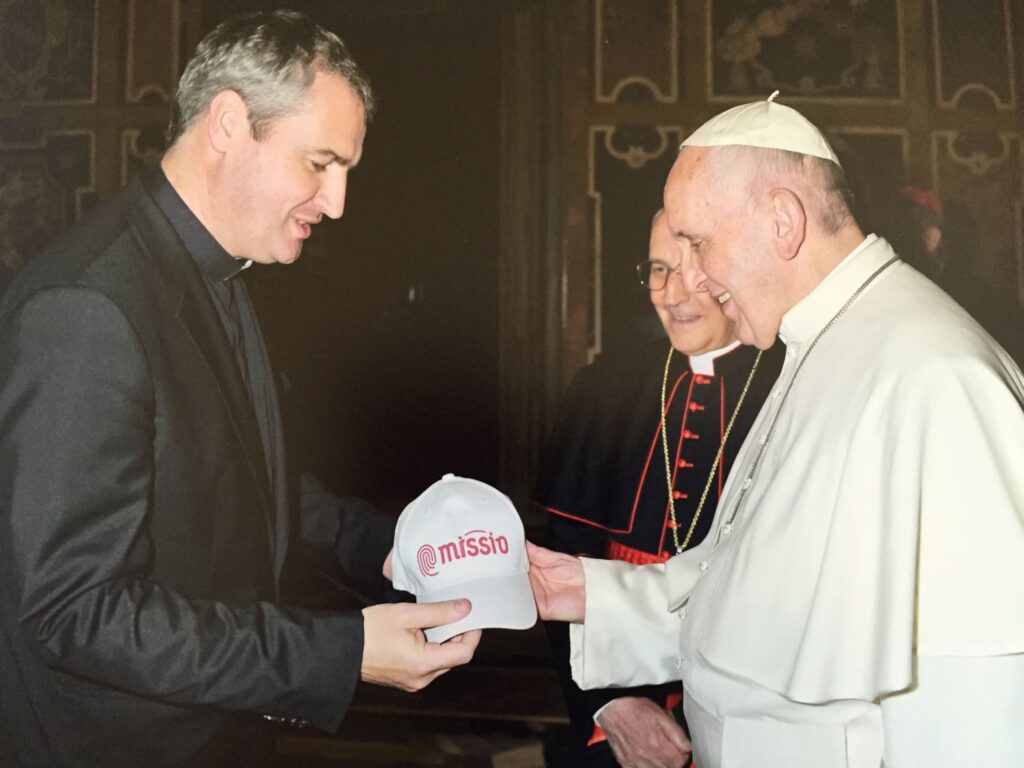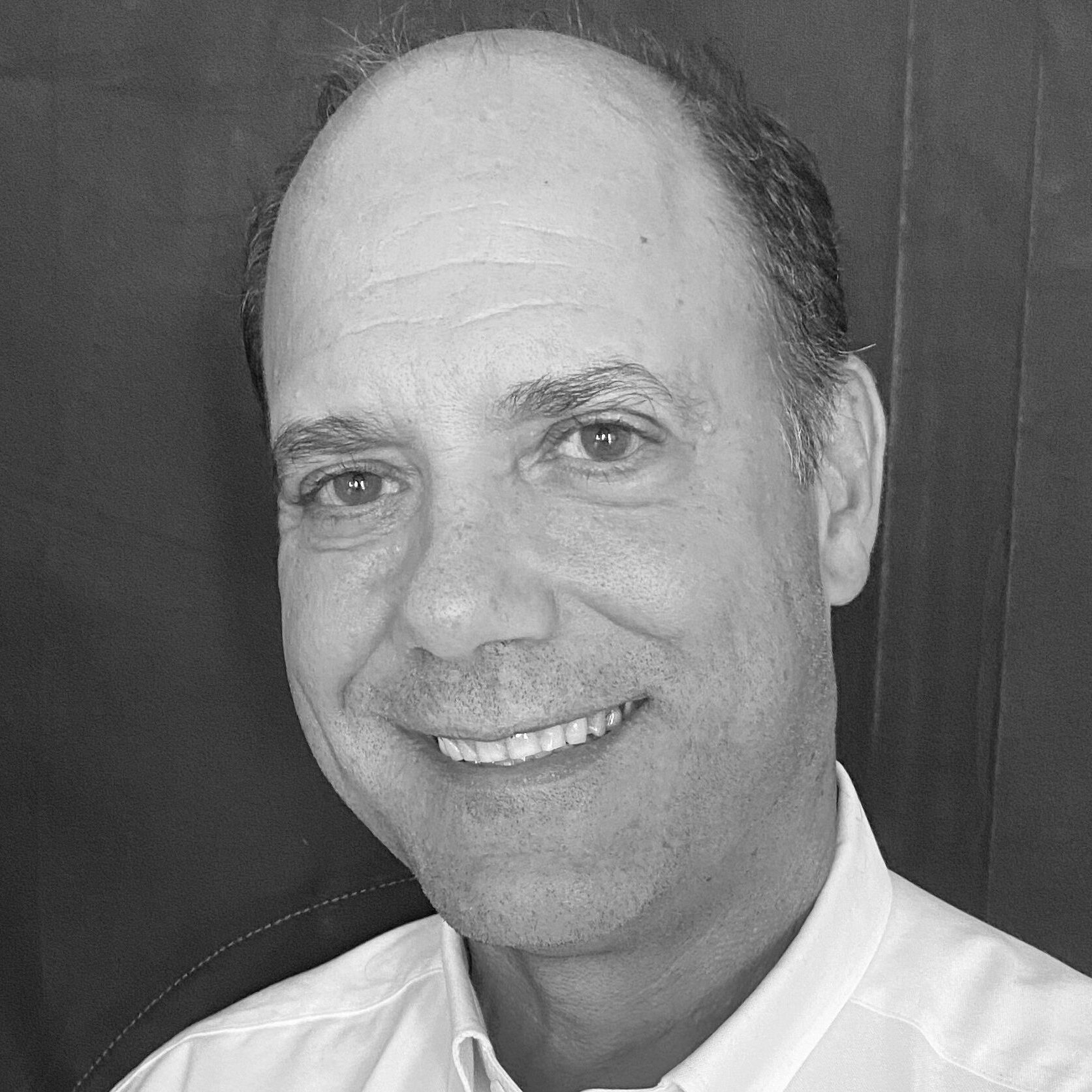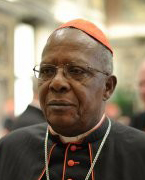
The Missio Invest Social Impact Fund (MISIF) leverages the resources of the global Catholic Church to create a scalable model for driving measurable impact in community and environmental well-being.
View this document for:
(more…)

To understand Pope Francis, one might do well to begin with his papal motto, Miserando atque eligendo (“having mercy and choosing”), which is borrowed from a commentary on the Gospels—specifically, the story of Jesus calling Matthew, the tax collector, to be his disciple.

Matthew was a finance professional of his time. While Jewish, he operated in the milieu of the conquering Roman Empire in collecting taxes from the people. Matthew might have convinced himself that he was performing a valuable financial service for his community. But Jesus himself does not shy away from calling Matthew a “sinner.” Jesus’ command to Matthew to “follow him” was scandalous precisely because tax collectors had an awful reputation and were known for cheating their co-religionists out of their money.
Two thousand years later, the finance profession is held in no greater esteem—and not without reason. Ethics has been emphasized by regulatory bodies, trade groups, and professional organizations over the years, but that still hasn’t completely disabused investors of the notion that finance professionals are making a free buck at their expense. Increasingly aware that their trusted financial advisor was first and foremost a salesperson, retail investors have started to push for flat-fee arrangements, and the fiduciary rule appears set to expand in the near future.
There is a wholesome push now to build up a partnership between investor and advisor, and to do what’s right within the world of finance to help build up trust between parties. Not coincidentally, there is a similar push to do what’s right in the investments themselves. Responsible investing, broadly considered, is an effort to extend ethical principles into the very decision of what investments to pursue. Responsible investing can take on any number of forms, from negative screens to impact investing, but the goal is the same: consistency between one’s beliefs and one’s portfolio, and consequently to build up a relationship of trust between the investor and society at large.
Yet today, the disconnect between markets and the real economy could not be more pronounced. Since 2009, markets have had their longest bull run in history, but the benefits have not been shared equally. By many measures of inequality, society has regressed. Low interest rates, while they might benefit the wealthy risk-taker, only indirectly benefit the hourly-wage employee with barely enough money to pay for food, rent, and child care. With very few assets to post as collateral and with risky credit profiles, the poor would be lucky to have access to cheap loans or lines of credit. Meanwhile, they earn little interest on any money they do manage to save.
Even today, despite 40 million people out of work due to the COVID-19 pandemic, the S&P 500 has quickly rallied from its pandemic lows. While one might easily argue that the stock market is definitely not the entire economy, a perspective informed by the Christian faith would find this discrepancy grating on the conscience. How is it that those with assets continue to benefit while tens of millions are struggling more than ever?
Investing is rarely associated with justice or mercy, and therein lies the problem. If each economic activity is a moral one, no investment is value-neutral. Pope Benedict summarized Pope John Paul II’s teaching on the subject in this way: “Investment always has moral, as well as economic significance.” Pope Francis put it this way: “Each meaningful economic decision made in one part of the world has repercussions everywhere else.” The difficulty of assessing such impacts does not excuse unethical investing, but only underscores the need for great honesty and transparency from businesses and—just as one example—the valuable work that many ESG ratings agencies are currently undertaking.
Francis explains that it is possible to direct our modern sophistication and technology toward an investment program that is inherently merciful. Like Jesus in the Gospel, finance professionals must also “choose and show mercy.” Billions of people depend on a healthy economy, a well-functioning financial system, and a society that is inclusive—in other words, one that advances human development. Everyone benefits when our financial system, from top to bottom, reflects a merciful, person-centric approach. This ultimately requires a concerted effort from all industry participants to build such a system, in a partnership between finance professionals and stakeholders.

Faith and finance operate as two distinctly different worlds, using different language, moving at different speeds. On Sundays, we speak of mercy, forgiveness and salvation. On Mondays, it’s competitive advantage, profit margins and credit ratings. Modern finance is changing rapidly, driven by technology, innovation and globalization. Faith, in contrast, is steady, focused on truths that are unchanging.
Decades ago, a small-town banker would share much in common with the local pastor, apart from a small gap when it came to “talking shop.” That gap has widened considerably as the specialization required to understand modern finance has exploded. True, the same can be said for many other professions such as engineering, computer science and medicine, but those fields are largely viewed as admirable vocations that improve our lives with each technological advance. The pastor does not need to understand to admire.
Not so with finance. Innovations in leverage, securitization, algorithmic trading, risk management, credit and market access — which have vastly expanded the size and scope of financial markets — are often viewed as abstract schemes to create profits for an elite minority rather than necessary functions serving a global economy that benefits all. From the perspective of many finance professionals, the Church (and other institutions) largely see modern finance as a catalyst for inequality, greed and materialism — more modern-day money changer at the temple than noble vocation and source of good.
Yet the act of providing finance for commerce remains an essential aspect of human activity. In The Joy of the Gospel, Pope Francis declares that “Business is a vocation, and a noble vocation, provided that those engaged in it see themselves challenged by a greater meaning in life.” In Laudato Si, the Pope goes further, declaring that work “can be a fruitful source of prosperity for the areas in which it operates, especially if it sees the creation of jobs as an essential part of its service to the common good.”
The Second Vatican Council defined the common good as “the sum of those conditions of social life which allow social groups and their individual members relatively thorough and ready access to their own fulfillment.” Finance professionals can and should take comfort that our work can serve the common good. The challenge for us is that our contributions are not as obvious as those of pre-school teachers, doctors or firemen.
Modern finance increasingly utilizes scale and technology to achieve ever larger impact. This impact is often abstract rather than tangible. While this ability to create and multiply wealth seemingly out of thin air is one of its most powerful innovations, it is also the source of mystery, concern and fear. The accumulation of wealth by a select minority who have mastered this is easy to see; the benefits to society as a whole, less so.
It is also a question of motive. To critics, religious and secular alike, finance appears to have elevated market performance and capital efficiency into idols in themselves, rather than gauges on the dashboard. We no longer care where the car is going as long as we are moving fast.
So to assure that the world acknowledges the noble ends that finance serves, we must also demand that finance serve a greater purpose. As finance professionals, we are already governed by some of the strictest regulations of any profession. But as people of faith, we are called to even higher standards. We must ask the questions that our faith demands and follow the answers where they go.
These questions will undoubtedly take us places we would rather avoid, places where financial “innovation” in pursuit of effectiveness and efficiency does create wealth but at the expense of the common good, rather than in service of it. We are called upon to be agents of change to fix this. Asking questions may also reveal places where the positive contributions of finance are simply misunderstood or understated. In these cases, we should take the time to explain things to others who do not see this. The most promising path may lie in between — down roads where innovations can better serve the common good. This path is not a substitute for working to change larger, more deeply entrenched problems. But it is a place to start. Innovations that have already benefited only the privileged few represent opportunities to make changes that serve the common good more directly and tangibly.
One example of this is providing innovative financial services to small enterprises in the developing world. Financial innovations that have been available to entrepreneurs in the U.S. for years — for example, expanded credit, better risk management, and streamlined payments — are frequently beyond the reach of small businesses in Africa, South Asia and Latin America. Hedging currency risk is a challenge for business of all sizes and has historically been available only to very large companies. Innovations in modern finance can now offer these and many more services to a wider range of businesses of all sizes in all places. These are just a few examples of the enormous potential for finance to do good if it is directed at the right target, rather than simply put on autopilot.
Financial professionals of faith, take a measure of note that you are indeed engaged in a noble profession. But while monitoring your instruments for top speed and fuel efficiency, be sure to look out the front, side and rearview windows. Make sure you are heading in the right direction and leaving a positive trail as you go.

“Indeed, this new form of Social Impact Investing is truly an empowering tool for the Church in Africa…”
This was part of the letter from Cardinal John Njue, then-Archbishop of Nairobi in Kenya, to Pope Francis, bringing to the attention of Pope Francis this initiative, which was then still incubated within the Pontifical Mission Societies before becoming an independent entity.
“For too long, our beloved Church in Africa has depended almost entirely on donations,” Cardinal Njue wrote. “While we remain forever grateful for this kind cooperation, it is important that the Church in Africa grow in self-reliance and healthy inter-dependence. By engaging the vast network of Church personnel, especially our young seminarians. and by utilizing existing resources such as Church-owned land, the Church is playing its part as a witness and as a protagonist in the aid and development of God’s people on our Continent.”
Read the whole letter at this link.